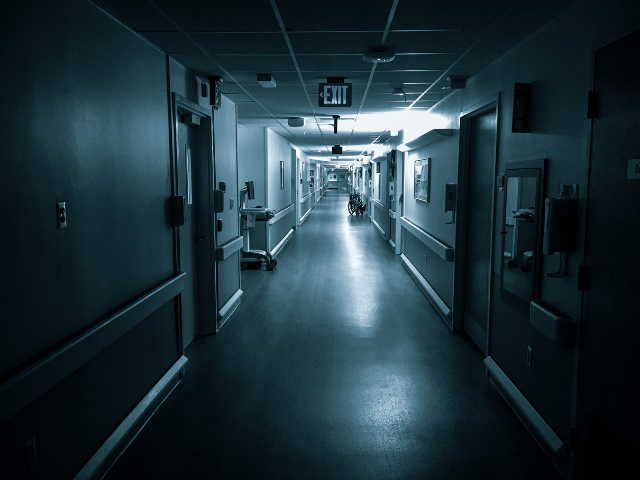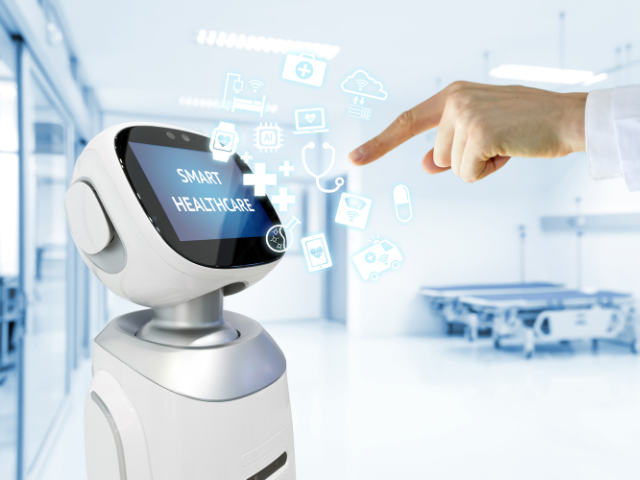Working with Moxi
The nurses at Illinois hospitals are not the only ones struggling with a lack of time with patients. According to a 2023 national nursing survey by AMN Healthcare, two-thirds of the 18,000 nurses surveyed reported not having enough time to spend with patients — a problem that has worsened within the last two years.
Moxi tracks the number of deliveries it makes on behalf of staff and the time it takes to run the errands. This data compilation gives each hospital the information it needs to determine if the robots are helping nurses save time. While logistics play a role in this new technology, robots are more than just computers for many.
Cedars-Sinai Hospital in Los Angeles, California, started using the robots in September 2021. According to the hospital, the nurses use a hospital-issued phone to call or text Moxi for help, and the robot responds within five minutes. Moxi even waved to staff members in the hallways as it rolled to various destinations.
“I think it’s important to have Moxi present because they not only provide an opportunity to improve workflows and be more efficient, but they’re a fun thing to see around the halls. They feel very future-forward,” said Melanie Barone, RN, the hospital’s Associate Nursing Director, in the Cedars-Sinai news release.
Several hospitals across the nation also have benefited from the robots.
Medical City Dallas’ Heart and Spine Hospitals in North Texas adopted the robots in October 2020, shortly after reopening the hospital during the COVID-19 pandemic. Moxi not only run errands there, but also updates medical records instantaneously for staff members.
“She’s meant to be a team member supporting you in the background,” Medical City Chief Operating Officer Josh Kemph told The Dallas Morning News in a statement.









